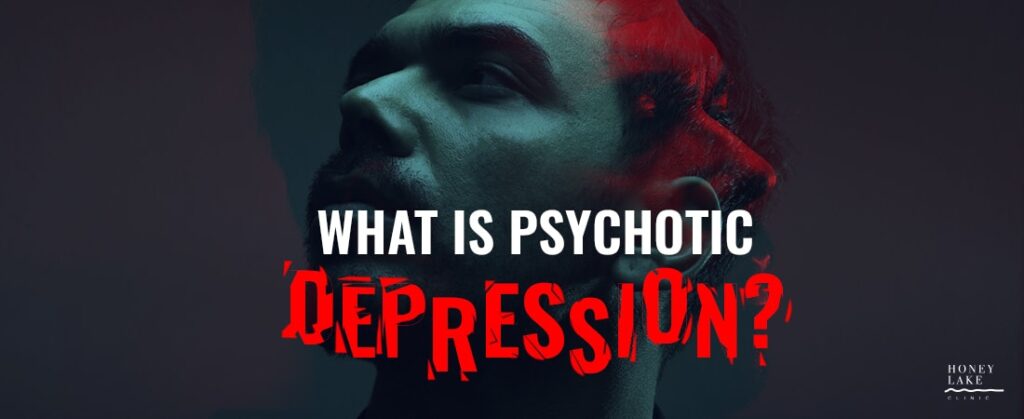What is Psychotic Depression?
Major depressive disorder is a common mental illness. Impacting mood and behavior and interfering with things like appetite and sleep, major depression negatively affects many areas of life. Sufferers often lose interest in things they once enjoyed and lose energy for performing everyday tasks and responsibilities.
Psychotic depression, also known as major depressive disorder with psychotic features, is as its name suggests—major depression accompanied by symptoms of psychosis.
What are the symptoms of major depression?
The symptoms of major depression include:
- fatigue
- irritability
- difficulty concentrating
- feelings of hopelessness or helplessness
- feelings of worthlessness or self-hate
- social isolation
- loss of interest in activities once found pleasurable
- sleeping too little or too much
- changes in appetite
- sudden weight loss or weight gain
- talks or threats of suicide
People suffering psychotic depression experience some of these symptoms and psychosis.
What is psychosis?
During a period of psychosis, a person has difficulty discerning what is real and what is not. They experience a break from reality in which delusions (false beliefs) and hallucinations (seeing or hearing things that others do not see or hear) become so real, they can become a danger to themselves and others.
Psychotic depression is a very serious condition which requires immediate treatment and close monitoring by medical and mental health professionals. If you or someone you love is experiencing psychotic episodes, we can help. To speak with someone right now, confidentially, call (888) 837-6577.
It’s estimated that about 20% of people with major depression also have symptoms of psychosis.
There are two different types of major depressive disorder with psychotic features. In both, delusions and hallucinations are present, but the affected person may experience major depressive disorder with mood-congruent psychotic features or with mood-incongruent psychotic features.
This distinction, too, is as the terms suggest. Mood-congruent means the hallucinations and delusions are consistent with typical depressive themes—feelings of personal inadequacy, guilt, or worthlessness, for instance. Mood-incongruent is when the hallucinations and delusions don’t involve typical depressive themes. Some people experience a combination of both mood-congruent and mood-incongruent elements in their delusions and hallucinations.
Psychosis (of either type) is particularly dangerous. Prompt diagnosis and treatment is crucial to preventing someone from hurting themselves or others. Let us help. Make the call.
What causes psychotic depression?
An exact cause of psychotic depression isn’t known. Research indicates people with a family or personal history of mental disorders are more likely to develop psychotic depression. Researchers also believe a combination of genes and stress can affect the production of certain chemicals in the brain, contributing to the development of psychotic depression. The condition may also be triggered by changes in the balance of hormones in the body.
But there’s hope—
In many cases, psychotic depression can be treated effectively. But the outlook for someone with psychotic depression will vary, depending on how quickly they receive treatment, and the effectiveness of the treatment they receive.
At Honey Lake Clinic, our experienced doctors and staff understand that faith-based treatment, which encompasses your physical, mental and spiritual health, will provide you with the long-lasting tools and knowledge to regain control of your life. Under proper care and monitoring, symptoms of psychosis can be alleviated with medication and therapies, allowing you to focus on developing the psychological and spiritual skills to find and experience renewal.
You have questions and concerns. Let us offer you some answers and encouragement.



